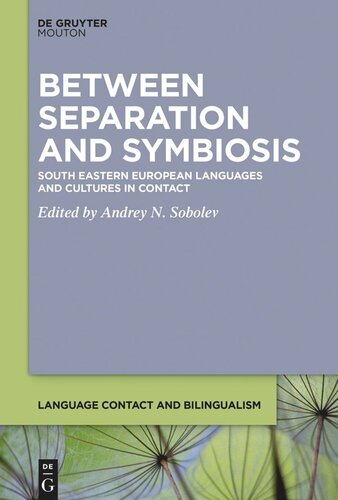

Most ebook files are in PDF format, so you can easily read them using various software such as Foxit Reader or directly on the Google Chrome browser.
Some ebook files are released by publishers in other formats such as .awz, .mobi, .epub, .fb2, etc. You may need to install specific software to read these formats on mobile/PC, such as Calibre.
Please read the tutorial at this link: https://ebookbell.com/faq
We offer FREE conversion to the popular formats you request; however, this may take some time. Therefore, right after payment, please email us, and we will try to provide the service as quickly as possible.
For some exceptional file formats or broken links (if any), please refrain from opening any disputes. Instead, email us first, and we will try to assist within a maximum of 6 hours.
EbookBell Team

0.0
0 reviewsThe book deals in detail with previously understudied language contact settings in the Balkans (South East Europe) that present a continuum between ethnic and linguistic separation and symbiosis among groups of people. The studies in this volume achieve several aims: they critically assess the Balkan Sprachbund theory; they analyse general contact theories against the background of new, original, representative field and historical Greek, Albanian, Romance, Slavic and Judesmo data; they employ and contribute to recent methods of research on linguistic convergence in bilingual societies; they propose new general assessments of extra- and intralinguistic factors of Balkanization over the centuries; and they outline prospects for future research. The factors relevant to contact scenarios and linguistic change in the Balkans are identified and typologized through models such as those related to a balanced or unbalanced (socio)linguistic situation.